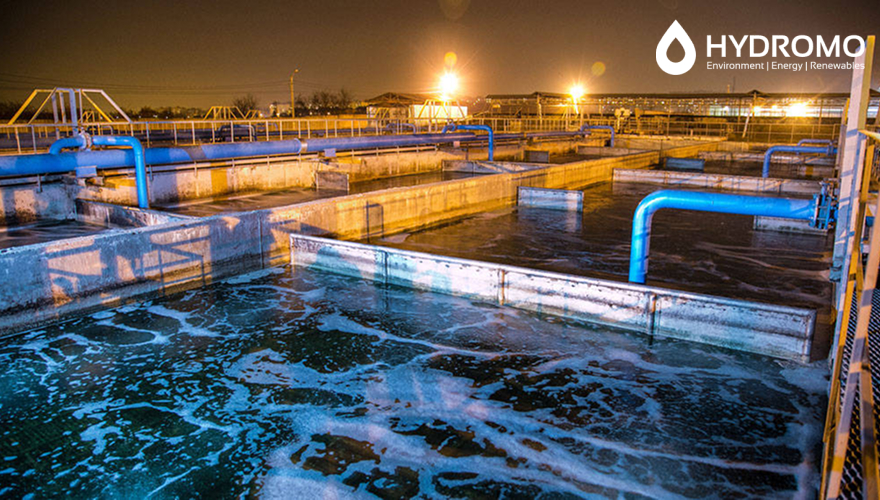
Today, water treatment is crucial for delivering clean and safe water for drinking, industrial use, and protecting the environment, with the alarming challenges of water scarcity and pollution globally. Untreated water contains many harmful contaminants that can lead to serious health and environmental challenges; therefore, water treatment is a cross-cutting necessity worldwide.
The Importance of Water Treatment Today
Water treatment removes contaminants, pollutants, and harmful microorganisms from any given water to make it safe for human consumption and use in a variety of sectors. With the public population growth and urbanisation, the demand for clean potable water increases. Only a small portion of Earth’s water is clean and suitable for human use. Water treatment eliminates some of this gap by making water fit for drinking, industrial processes, agriculture, and rejuvenating ecosystems, preventing outbreaks of waterborne illness and ensuring the protection of our natural waterbodies from pollution caused by untreated wastewater.
Real-Time Examples Highlighting Water Treatment Necessity
- Untreated sewage being released in the rivers has caused outbreaks of diseases like cholera and typhoid in rapidly expanding urban areas hence the alarming need to put up effective sewage treatment plants.
- Untreated industrial wastewater that is discharged into the surface waters will cause the proliferation of heavy metals and chemical toxins within the surface water bodies.
- The owners of those businesses that have the efficient effluent treatment plants (ETPs) can fully comprehend the implications of the wastewater treatment, both in the perspective of pollution prevention and environmental regulations compliance.
- Water-stressed urban areas are also considering wastewater treatment and reuse systems such as zero liquid discharge (ZLD) systems which are capable of extracting up to 95 percent of the water content in streams of industrial effluents and as such, this type of treatment is significantly lowering the need to use freshwater resources.
- The use of treated wastewater is a significant source of water to facilitate irrigation and industrial cooling especially during drought periods when the drinking water is being conserved.
Why Universal Water Treatment Is a Necessity?
Treatment of water is no longer possible as the stress of water raises, water pollution intensifies and health threats escalate. Treating water ensures the safety of human consumption, protects the essential biodiversity, and also allows industries and agriculture to pursue sustainable development. Failure to treat water may pose public health crises, irreparable ecosystem effects, economic effects, and breaking of the existing laws.
Global Data Underscoring Water Treatment’s Importance
- By 2022, almost 2 billion individuals still drink unsafe or untreated water, even though 73 percent of the total population of the world has access to safely managed drinking water services.
- Waterborne diseases associated with low water quality are the leading causes of morbidity (80 per cent) as well as childhood mortality (50 per cent) in developing areas.
- The domestic wastewater in the world is safetely treated only between 52-56% and in the low-income countries, the coverage of treatment is less than 20%.
- Only 37 per cent of domestic and 29 per cent of industrial wastewater is treated in India, and this implies the existence of critical gaps in infrastructure.
- It is estimated that the worldwide water and wastewater treatment market will experience a rise in the number of USD 346.41 billion in 2024 to USD 617.81 billion in 2032 due to the rising investments and the extension of infrastructure demand.
- Properly managed treatment plants are in a position to cut down chemical use by 50 percent, water wastage by 20 percent, and municipal energy by 30 percent.
About Hydromo
Hydromo is a forward-thinking company in water and wastewater treatment offering sustainable alternatives and applications including sewage treatment plants (STPs), effluent treatment plants (ETPs), and zero liquid discharge (ZLD) systems to both commercial and industrial customers. Hydromo enables organizations to meet regulatory compliance in a way that conserves water, reduces pollution, and decreases operating costs by converting wastewater into safe and reusable water. Their strategy will help building a sustainable water future, which is critical to industries and communities in the world.
Conclusion
Water treatment is a component of regulatory compliance and an ethical implication of ensuring the safety of the people, as well as saving a valuable resource and encouraging sustainable development. The future-proofed treatment technologies and professional solutions that are being provided by Hydromo are also a sustainable answer to the creation of a safer, cleaner, and a more sustainable water future.
